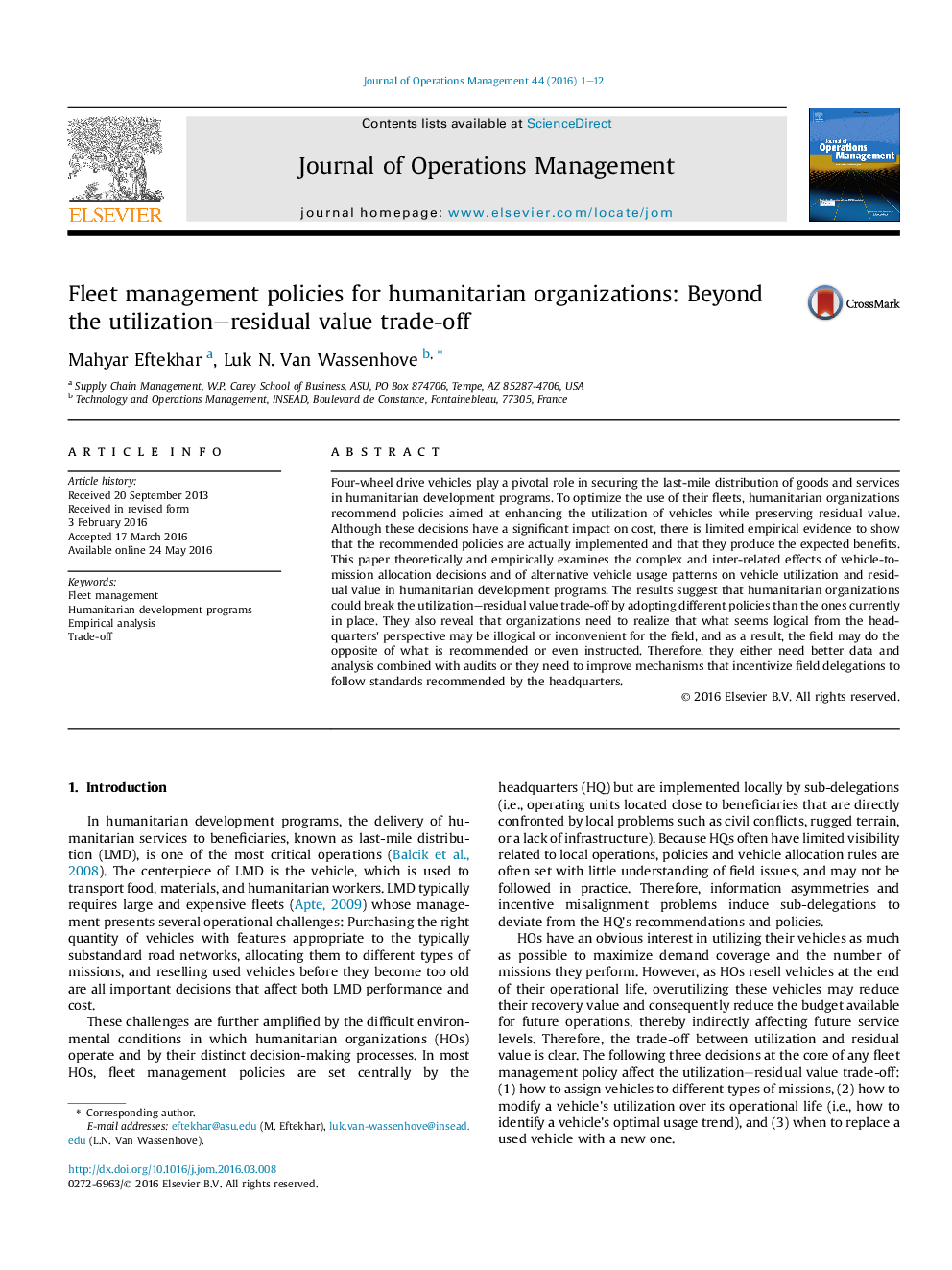| کد مقاله | کد نشریه | سال انتشار | مقاله انگلیسی | نسخه تمام متن |
|---|---|---|---|---|
| 1031601 | 1483627 | 2016 | 12 صفحه PDF | دانلود رایگان |
Four-wheel drive vehicles play a pivotal role in securing the last-mile distribution of goods and services in humanitarian development programs. To optimize the use of their fleets, humanitarian organizations recommend policies aimed at enhancing the utilization of vehicles while preserving residual value. Although these decisions have a significant impact on cost, there is limited empirical evidence to show that the recommended policies are actually implemented and that they produce the expected benefits. This paper theoretically and empirically examines the complex and inter-related effects of vehicle-to-mission allocation decisions and of alternative vehicle usage patterns on vehicle utilization and residual value in humanitarian development programs. The results suggest that humanitarian organizations could break the utilization–residual value trade-off by adopting different policies than the ones currently in place. They also reveal that organizations need to realize that what seems logical from the headquarters' perspective may be illogical or inconvenient for the field, and as a result, the field may do the opposite of what is recommended or even instructed. Therefore, they either need better data and analysis combined with audits or they need to improve mechanisms that incentivize field delegations to follow standards recommended by the headquarters.
Journal: Journal of Operations Management - Volume 44, May 2016, Pages 1–12
